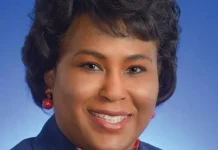Caesars Fined $1M By State For Threats Over Casino Expansion
The commission unanimously voted Thursday afternoon to fine Caesars for its threats earlier this year when company representatives said they likely wouldn’t pursue a $90 million project at Horseshoe Southern Indiana Hotel and Casino if the $50 million transfer fee related to Caesars’ purchase of Indiana’s two horse racing casinos wasn’t waived.
The fine is tied for the second-highest the commission has ever imposed. The highest fine—$2.26 million—was paid by Belterra Casino and Resort in 2002 after the Florence casino’s parent company, Pinnacle Entertainment, brought in prostitutes to entertain guests at a golf outing.
Caesars revealed in November 2017 that it planned to buy Indianapolis-based Centaur and its Hoosier Park casino and racetrack in Anderson and Indiana Grand casino and racetrack in Shelbyville for $1.7 billion. The gaming commission voted 5-0 to approve that deal later Thursday.
According to state law, the initial casino license holder is required to pay a $50 million transfer fee when the controlling interest in the license is sold. The law provides a few exceptions, but commission staff members have maintained that fee applies to the Centaur deal.
Attorneys working for Centaur and Caesars argued the fee should be waived through. And when the Horseshoe Southern Indiana project was slated to be on the commission’s March 8 agenda, attorneys for Caesars pushed the commission to waive the fee—or pull the project from the agenda.
“… Caesars is now facing some very difficult decisions with regard to its proposed $90 million investment in southern Indiana,†Timothy Donovan, executive vice president, general counsel and chief regulatory and compliance officer for Caesars, wrote in an email to commission Executive Director Sara Gonso Tait on March 2. “We would prefer not pulling it from next week’s agenda, but at this point we may have no choice given the continued uncertainty surrounding the $50 million transfer fee.â€
Donovan also said the uncertainty with the fee was causing the company “great concern about our decision to increase our investment in Indiana.â€
He ended the emailing by encouraging Tait to help resolve the fee issue before March 8.
According to the settlement agreement made public at the gaming commission meeting Thursday, on March 6, Caesars formerly asked the commission to remove the project from the meeting. But then, on March 15, Caesars requested a special meeting in April to approve the project.
Tait told commission members at the meeting Thursday afternoon that Caesars has a good history of working with the state, but the state has a very high standard for casino owners and operators.
“While Caesars maintains it was not their intention, commission staff perceived the communications as an inappropriate effort to influence commission action by leveraging the Southern Indiana project,†Tait said. “The overall impact of these communications could serve to undermine the public’s confidence and trust in the integrity of the gaming industry in Indiana.â€
“We recognize and accept full responsibility for the matters that led to the settlement,†Sue Carletta, chief regulatory compliance officer for Caesars, told the commission Thursday. “Caesars is committed to ensuring that we move forward in a positive manner.â€
The settlement agreement reached by the commission and Caesars says “ Caesars regrets the communications.†It also says the company will expand its annual compliance training.
At the same meeting Thursday, the commission ruled that the $50 million fee must be paid. But attorneys for the casino companies had already been communicating with commission staff about how to pay the fee, and they did not dispute it at Thursday’s meeting.
The Indiana Horse Racing Commission, which unanimously approved the Centaur acquisition on Wednesday, received the settlement agreement as part of their packet of confidential documents prior to their meeting, so members of that board were aware of the pending disciplinary action.
The commission staff didn’t suggest the disciplinary action should impact Caesars’ purchase of Indiana Grand and Hoosier Park, because the company otherwise has a good working relationship with the state.
“Caesars’ good record of compliance is certainly something that has to be taken into account,†commission Deputy Director Jenny Reske said. “You can’t just look at one piece of information and make a decision.â€




